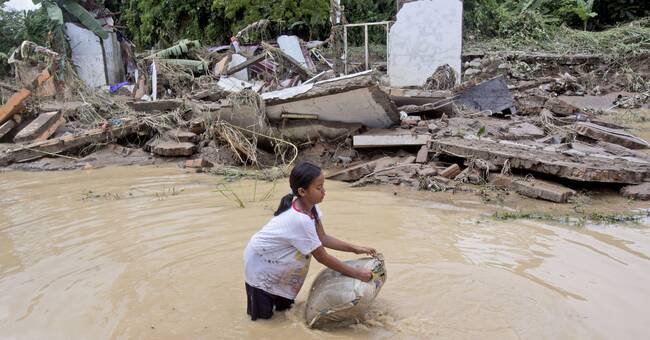Adaptations to cope with climate change are one of the cornerstones of the Paris Agreement - in addition to rapidly reducing greenhouse gas emissions.
Even if emissions are halted, climate change is already underway and is expected to have dramatic effects.
Climate adaptation is about protecting the population, agriculture and important societal functions against floods, heavy rainfall, sea level rise, droughts and heat waves.
Prioritized emissions
But according to a new report from the UN Environment Program UNEP - Adaption Gap Report 2020 - the work is lagging behind.
- Now we see that the climate is changing, and it is really high time to speed up climate adaptation, says Åsa Persson, head of research at the Stockholm Environment Institute (SEI), who was commissioned to expert review parts of the report.
72 percent of the countries in the Paris Agreement have developed plans for some type of climate adaptation.
And another 9 percent are in the planning phase.
However, of the 1,700 projects studied in the UN report, most were at a very early stage, and only 3 per cent were judged to contribute to climate adaptation in practice.
Lack of funding
The world's poor and less developed countries will be hardest hit by climate change.
A crucial bottleneck to get the work of climate adaptation started is therefore the financing, according to Åsa Persson.
- There is a positive trend for how much money comes through the various UN funds and from aid.
But the level is still far too low, compared to what it costs.
Today, the need for developing countries' climate adaptation is estimated at around $ 70 billion per year.
In another 30 years, the cost may have grown to nearly $ 500 billion.
Affects Sweden
Although the need for climate adaptation is often regarded as a matter for the countries directly affected, research shows that the consequences will affect relatively spared countries such as Sweden.
- Not much is discussed in this report, but it is important to also see the cross-border climate effects.
It can be about being dependent on food from other countries, having investments in vulnerable countries - and migration, which is a big issue.

